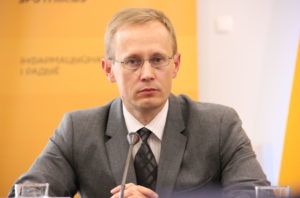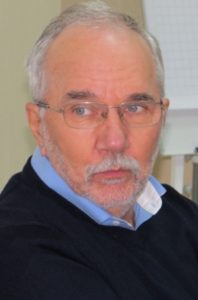Why is the Workshop EECA INTERACT so important for the EECA region?
Alexei Alexandrov, a member of the international committee of EECA INTERACT 2019, head of Minsk regional clinical centre “Psychiatry-narcology”.
 EECA INTERACT can become a model for building regional and country interaction between young and experienced researchers, medical practitioners, employees of non-governmental organizations and members of community initiatives, as well as representatives of the government.
EECA INTERACT can become a model for building regional and country interaction between young and experienced researchers, medical practitioners, employees of non-governmental organizations and members of community initiatives, as well as representatives of the government.
All these specialists are involved in solving the problems of HIV infection, tuberculosis and viral hepatitis, and also related problems of drug use, criminalization, prison health, stigma and human rights. The exchange of experience by specialists from EECA countries with similar situations on HIV, TB, Hep, drug use, the results of new studies and expert assessments will allow choosing the best solutions to change the situation and begin to really implement them.
For me, EECA INTERACT is not only a meeting with new colleagues and getting acquainted with the results of their work, discussing pressing issues, forming direct contacts to continue cooperation or a network of interaction. The seminar is a continuation of the efforts that we, experts of the EECA countries, are directing to respond to the HIV epidemic in the region, implementation of those innovations that have already been tested in the world and are evidence-based.
The workshop is a step towards the development of a unified scientific, expert and practical community of our countries, united by common tasks. Everyone can have their own vision of the situation, challenges and solutions, but only joint discussion and analysis will allow finding potential points of influence for success.
How would you rate the development of clinical and research networks in the EECA region today?
 Sergii Dvoriak, a member of the international committee of EECA INTERACT 2019, M.D., D.Med.Sci, founder and senior scientist, UIPHP, professor at the department of social work, ALSRT.
Sergii Dvoriak, a member of the international committee of EECA INTERACT 2019, M.D., D.Med.Sci, founder and senior scientist, UIPHP, professor at the department of social work, ALSRT.
In our region, a lot of problems are associated with the traditions and imperfections of medical education. For several years I conducted training seminars “Effective Treatment of Drug Dependence” in Salzburg (organized by the Open Society Foundation), where all participants, mainly doctors, were divided into 2 groups, the Russian-speaking from EECA and the English-speaking from Southeast Asia and Africa. People from EECA were educated in the “Soviet” system, the others – in the “Western”.
I noticed a very clear difference in the methods for solving clinical problems. People from EECA went into “philosophy” and the so-called pathogenetic way of thinking, and “Western” immediately appealed to existing protocols and standards, objective data, etc. I then realized that many of our specialists need to be retrained and they should focus on evidence-based methods, and not on general considerations and “clinical points of view.” For this, we need such meetings like EECA INTERACT, where these points can be emphasized. It is important also that decision-makers participate in such events.
In Ukraine over the past 10 years, significant progress has been made in the development of clinical and research links. To some extent, a solid research infrastructure has been created, several organizations were found which can not only participate in international collaborative projects but also independently carry out research and receive funding from donors such as National Institutes of Health, CDC, WHO etc. Unfortunately, national donors are still very sparingly involved in this process.
Ministry of Health also does not understand enough how important the systematic and continuous process of conducting scientific research is, and the importance of implementation projects is underestimated.
Officials believe that only mainly state institutions have the right to make scientific research. They expect global discoveries or creation of new vaccines, effective drugs, but they do not really understand that in the modern world only a limited number of countries and companies are able to take such steps. There are no such resources in EECA countries, but this does not mean that research is not needed. Doctors should be involved in scientific projects as much as possible, because this disciplines clinical thinking, makes it possible to get acquainted with the modern scientific context.



